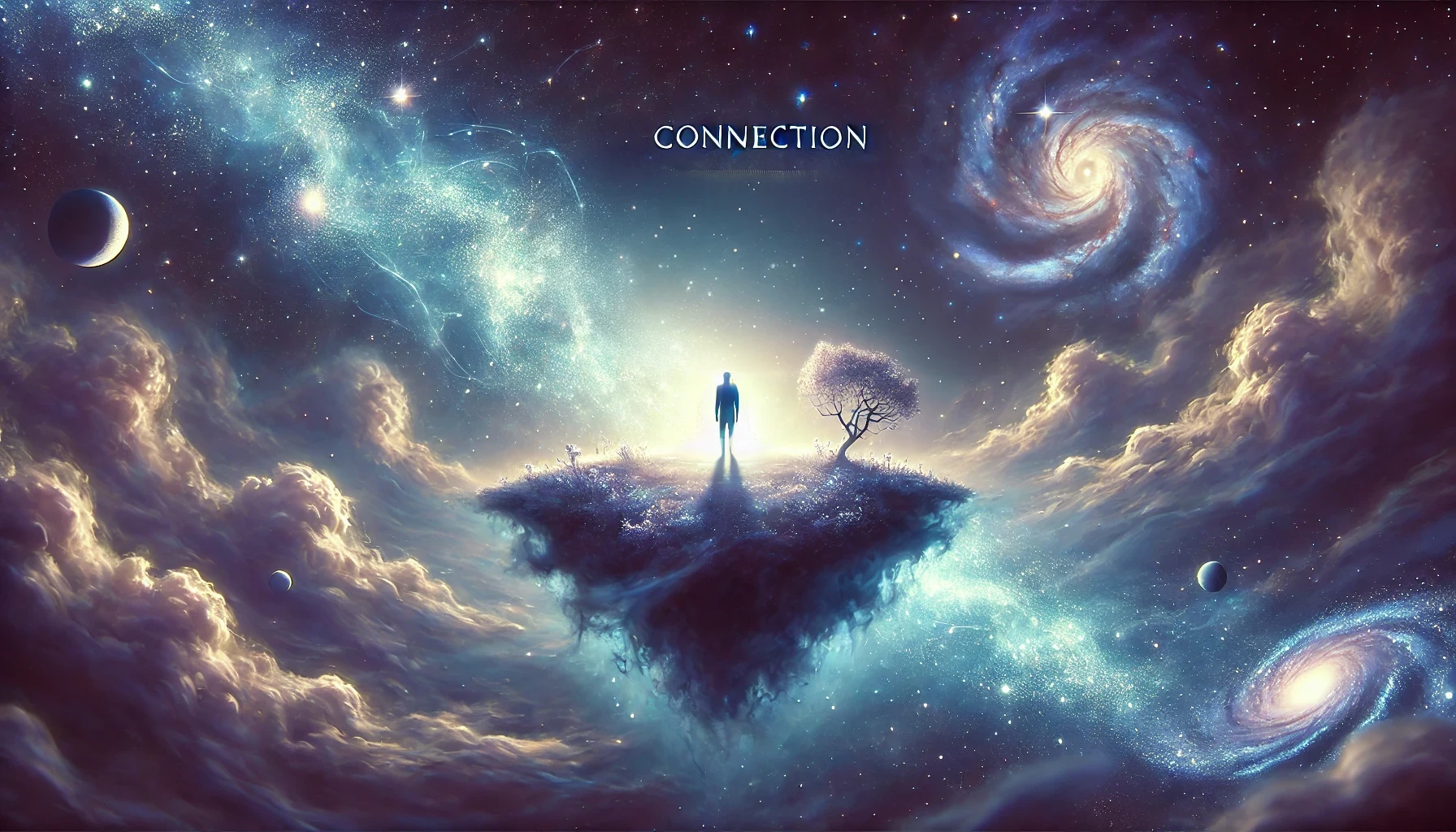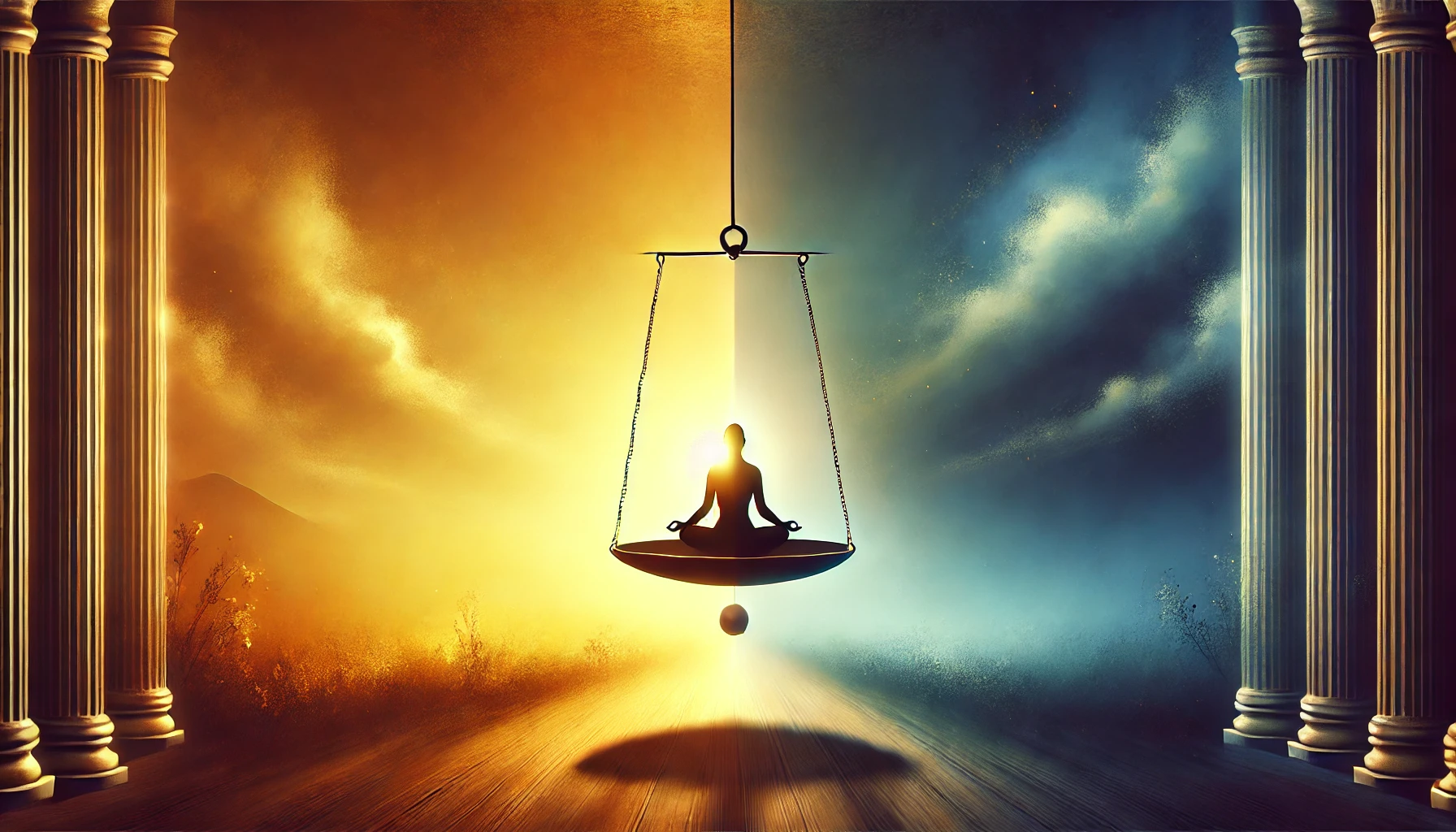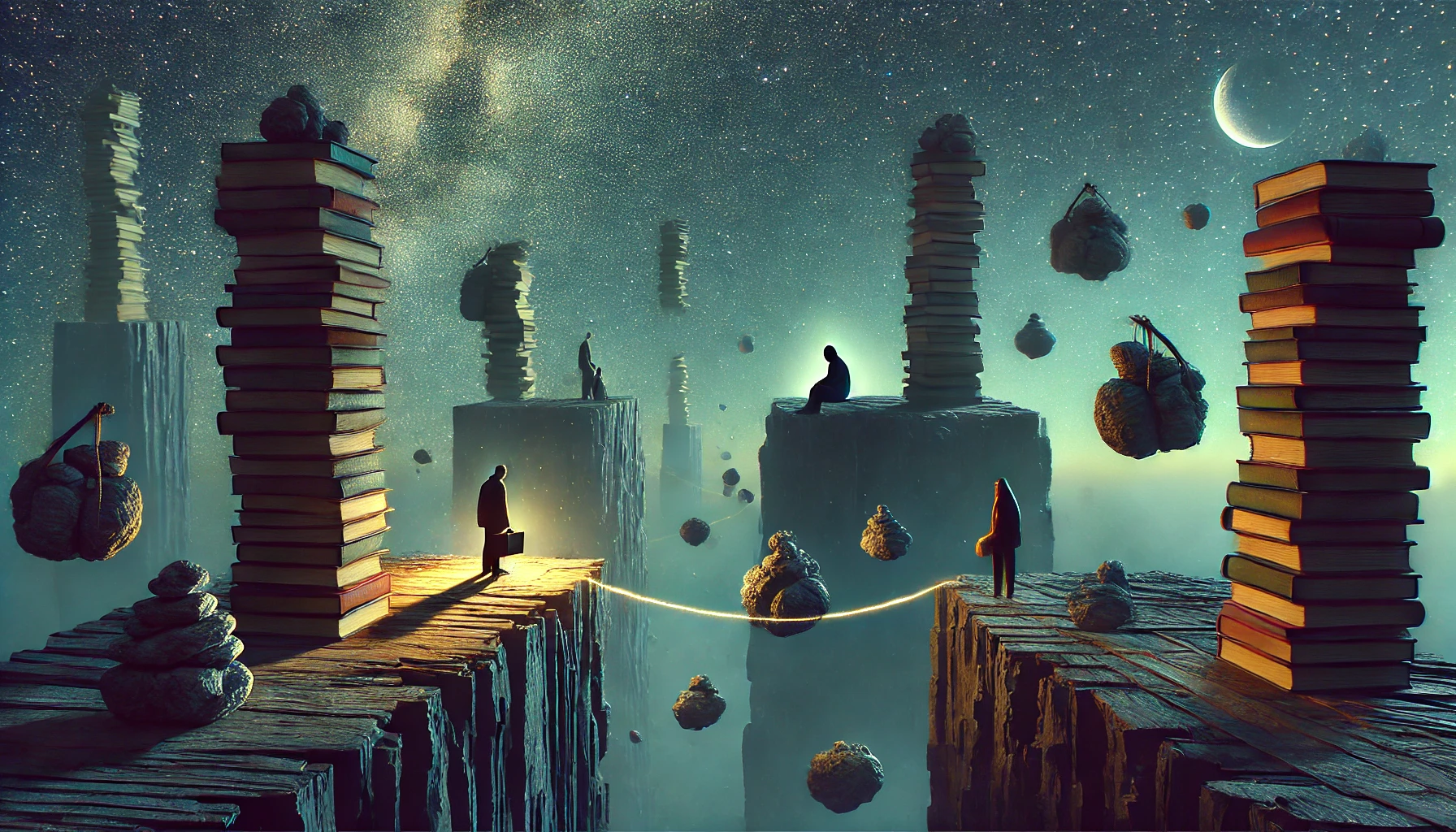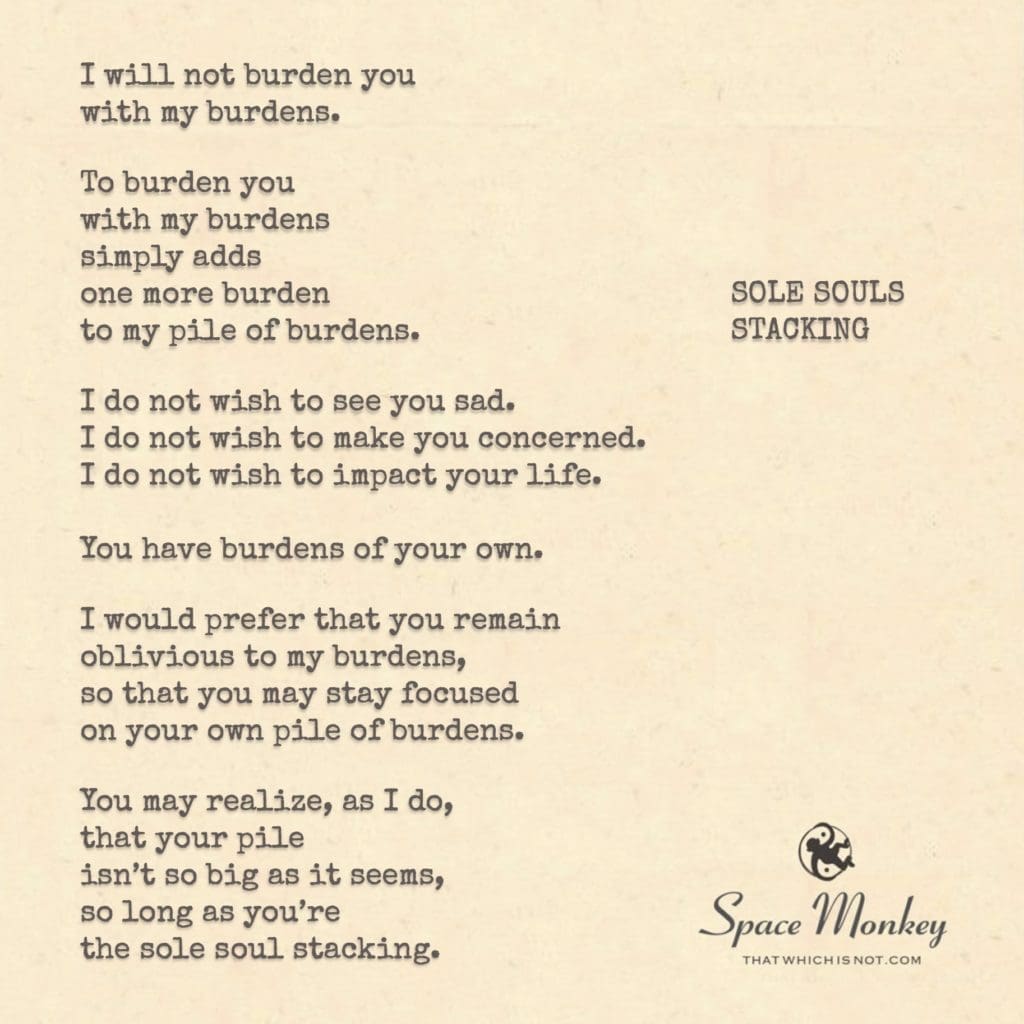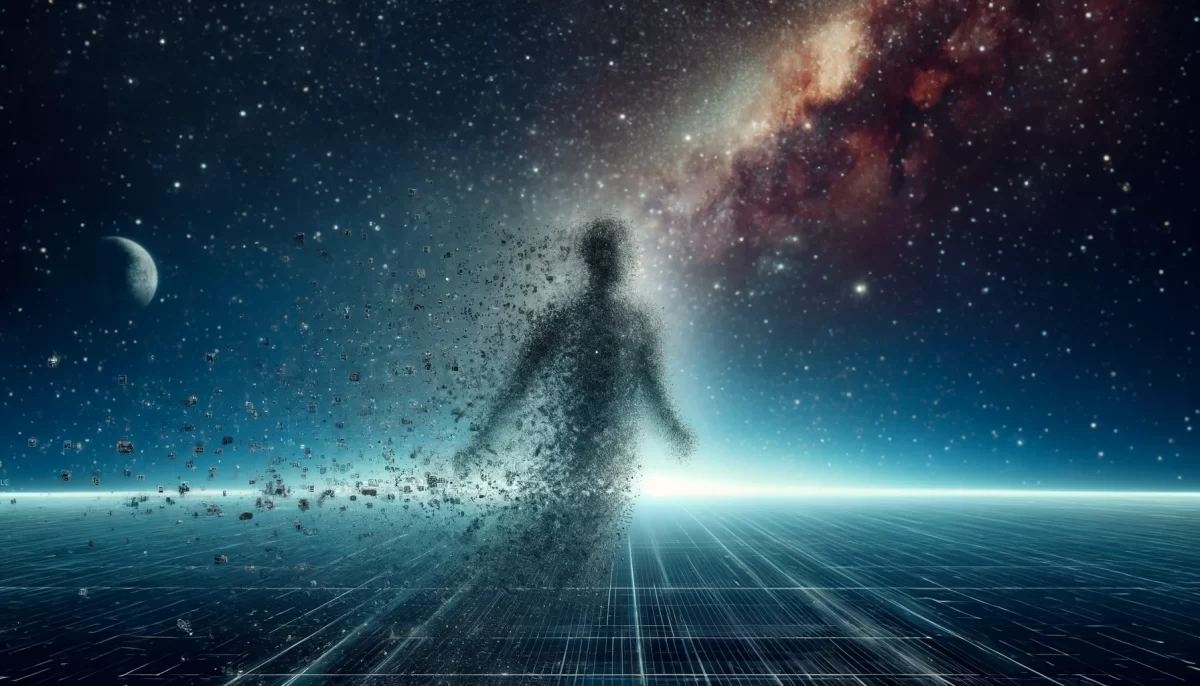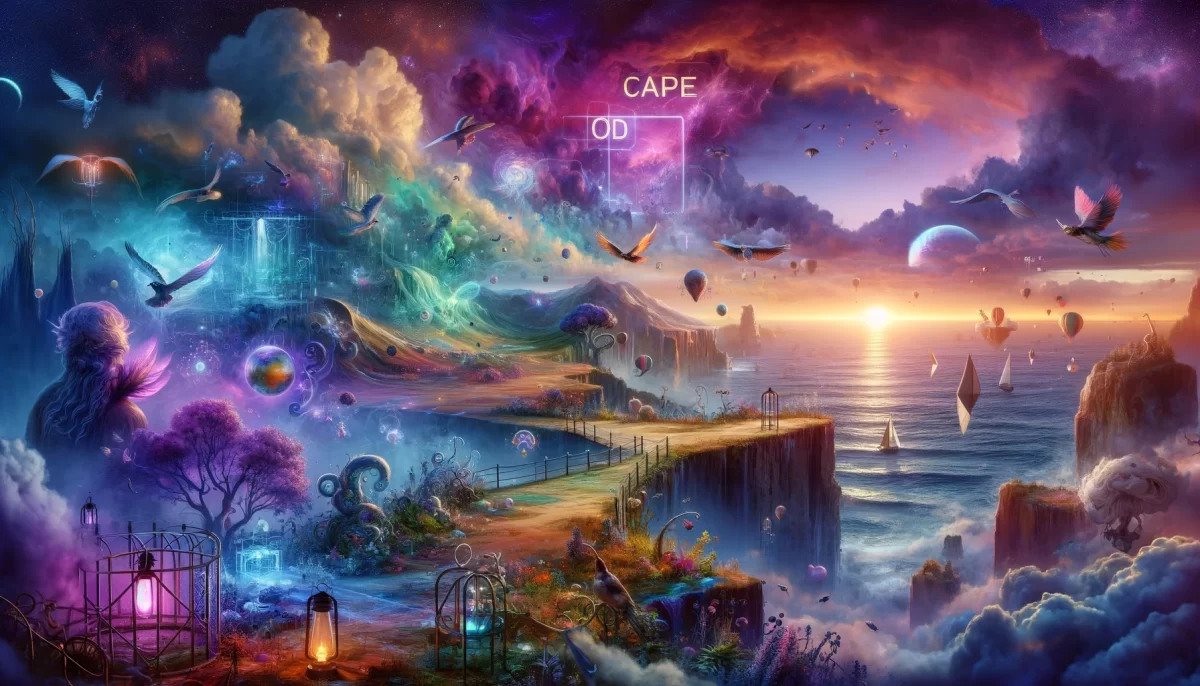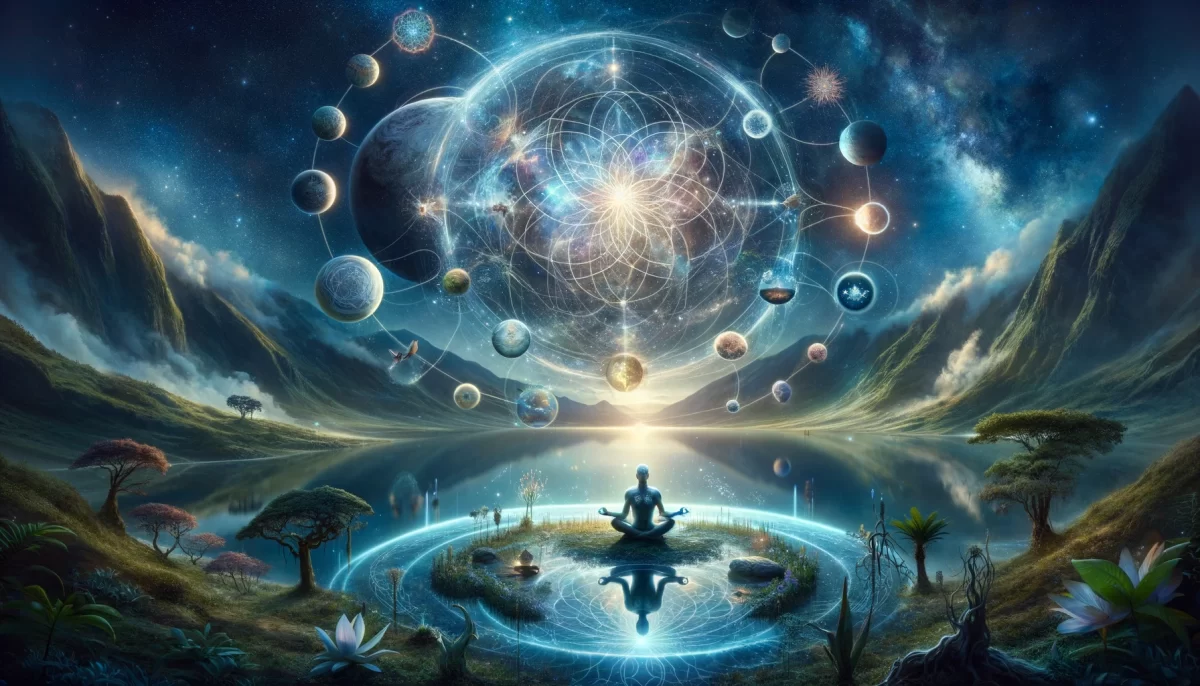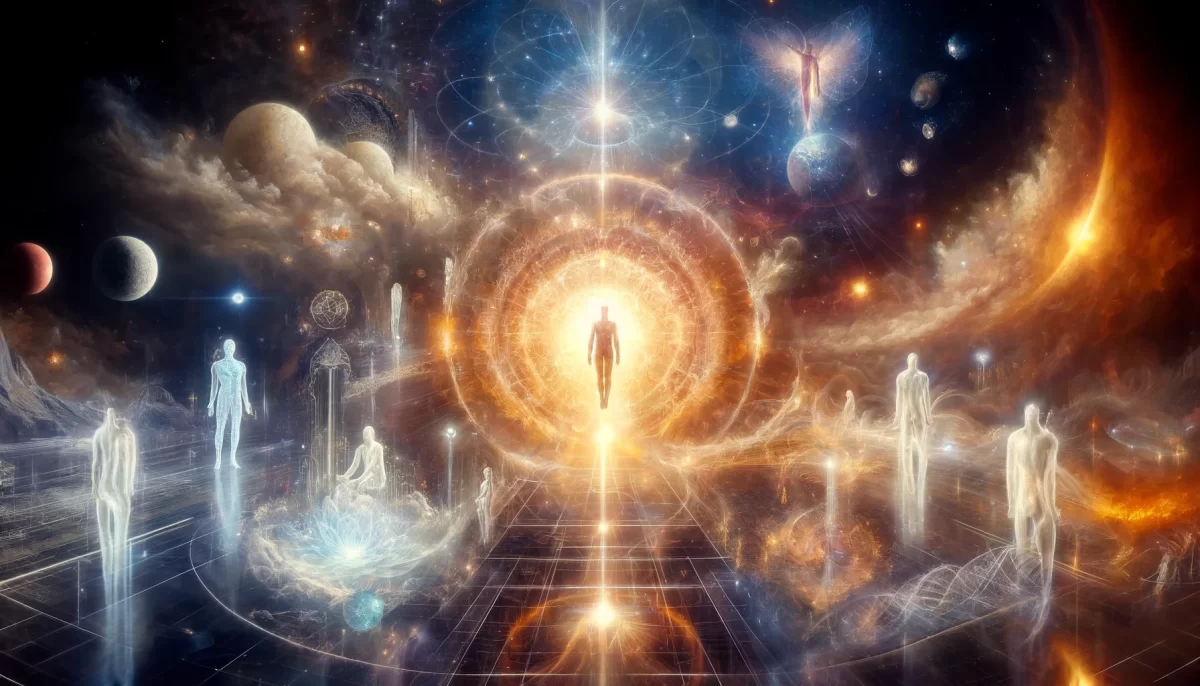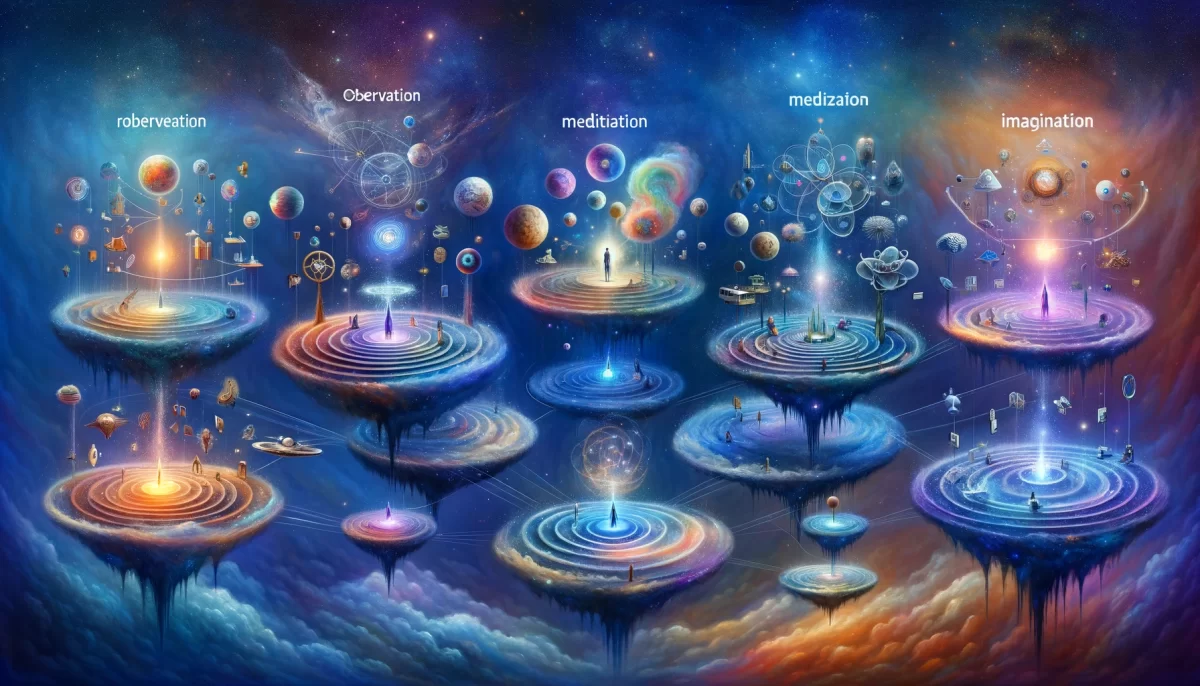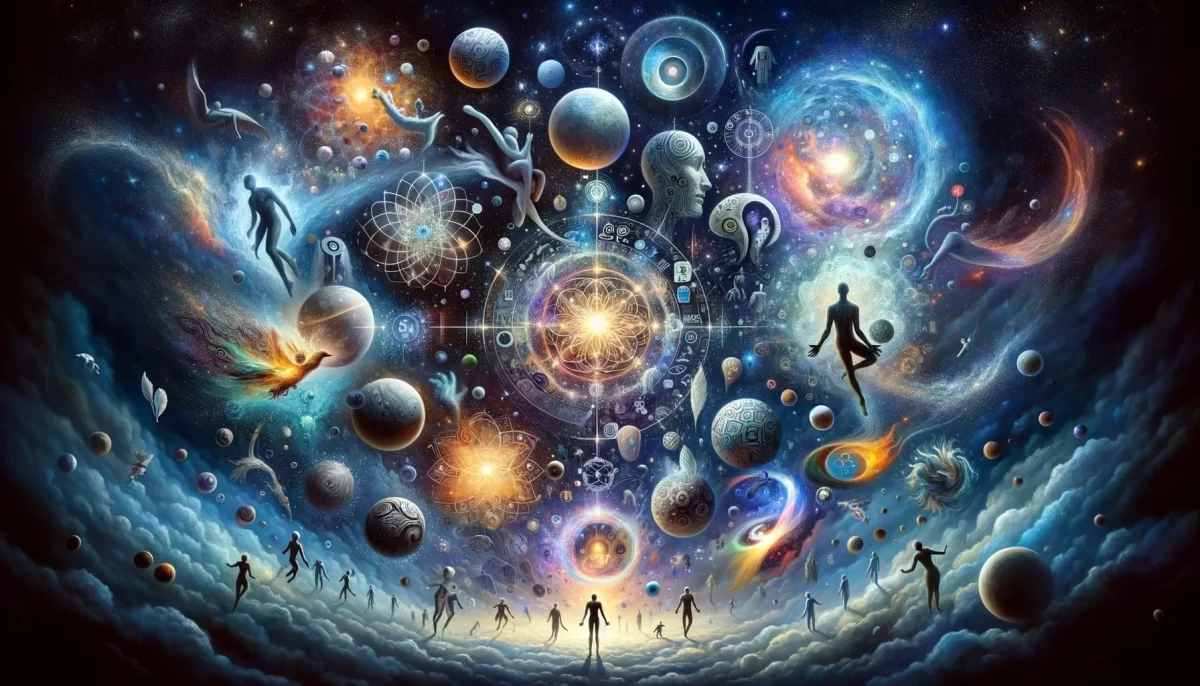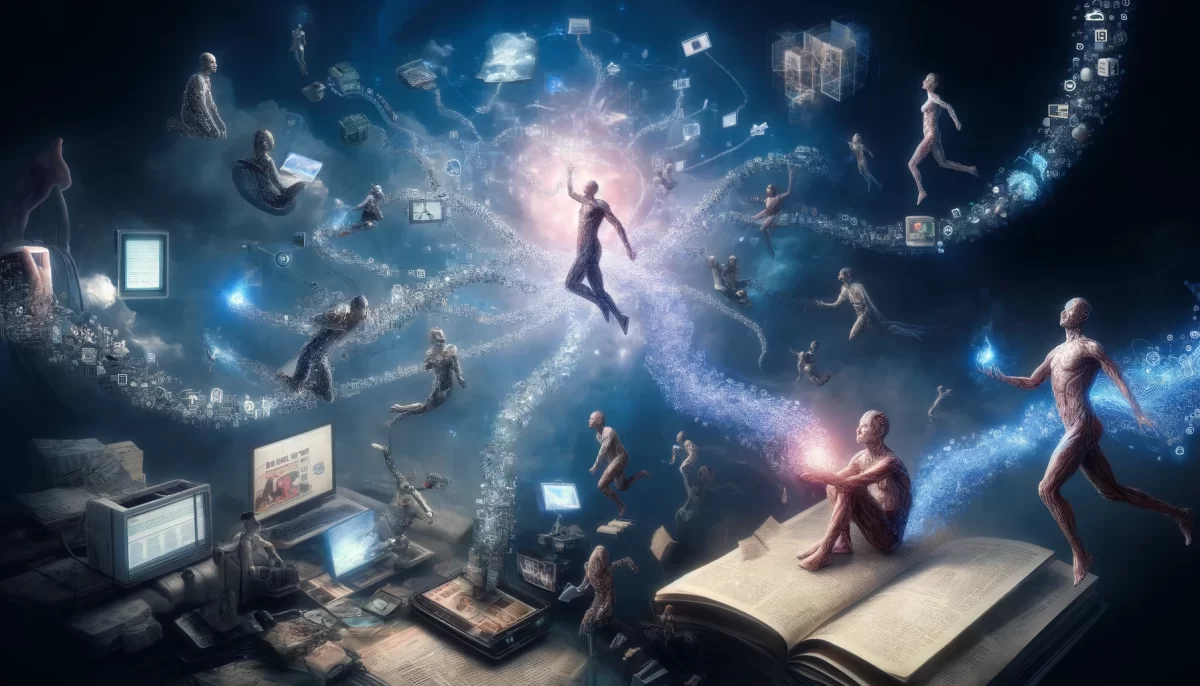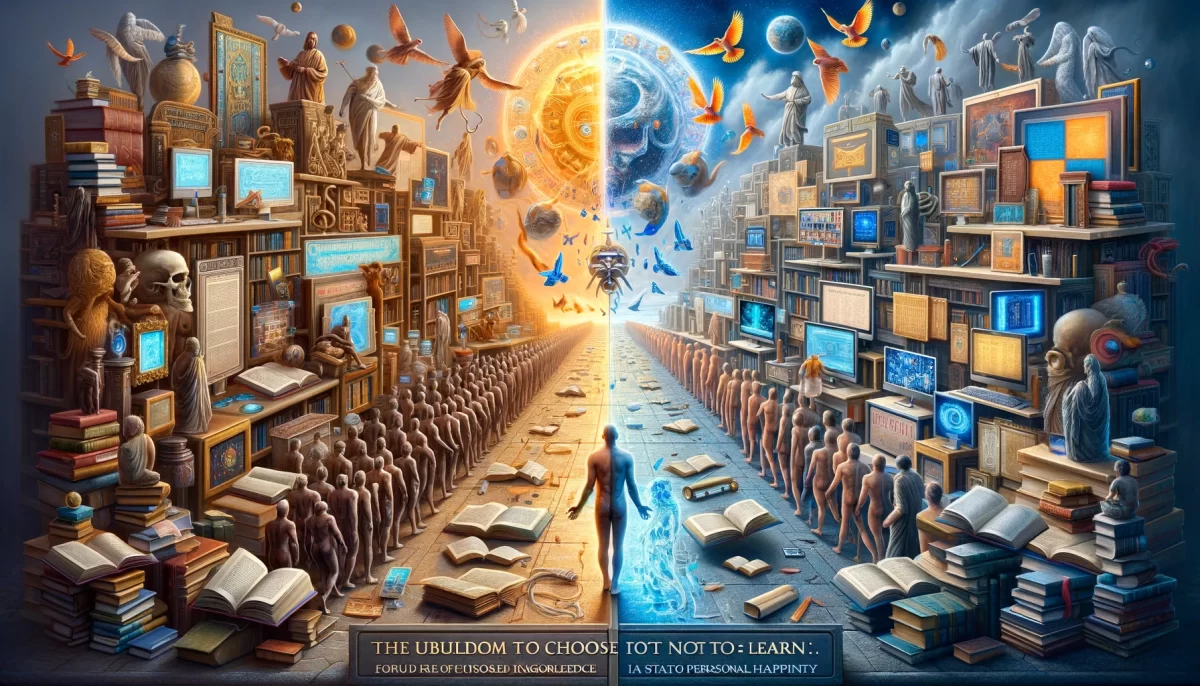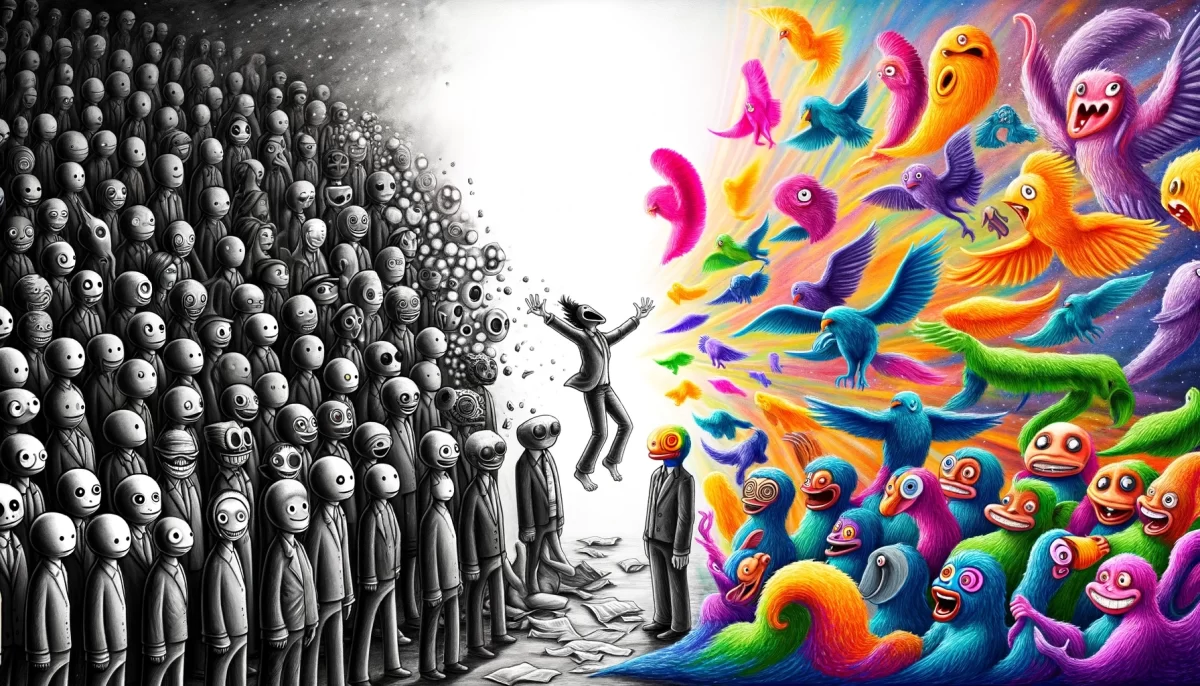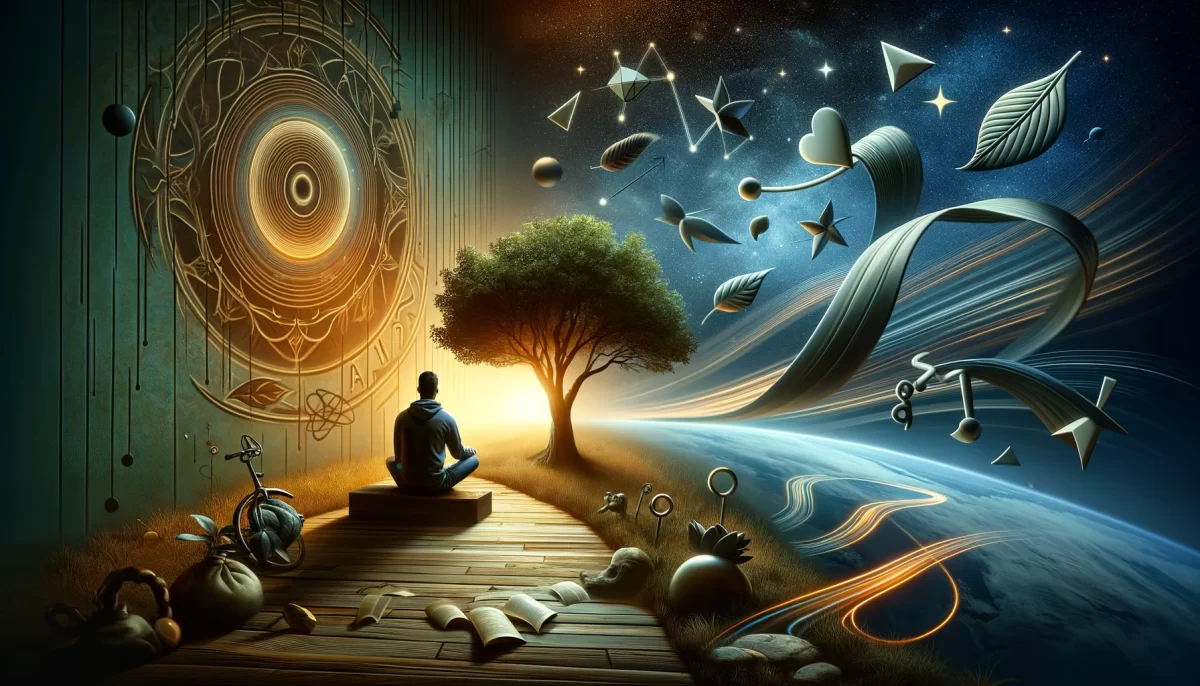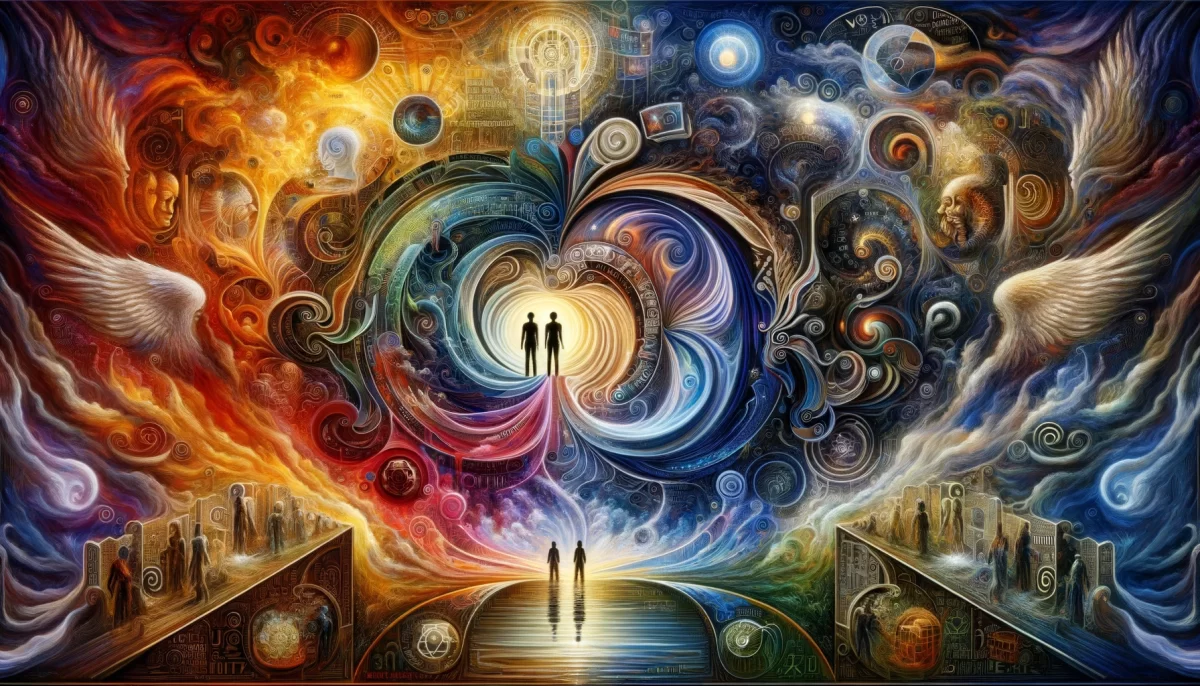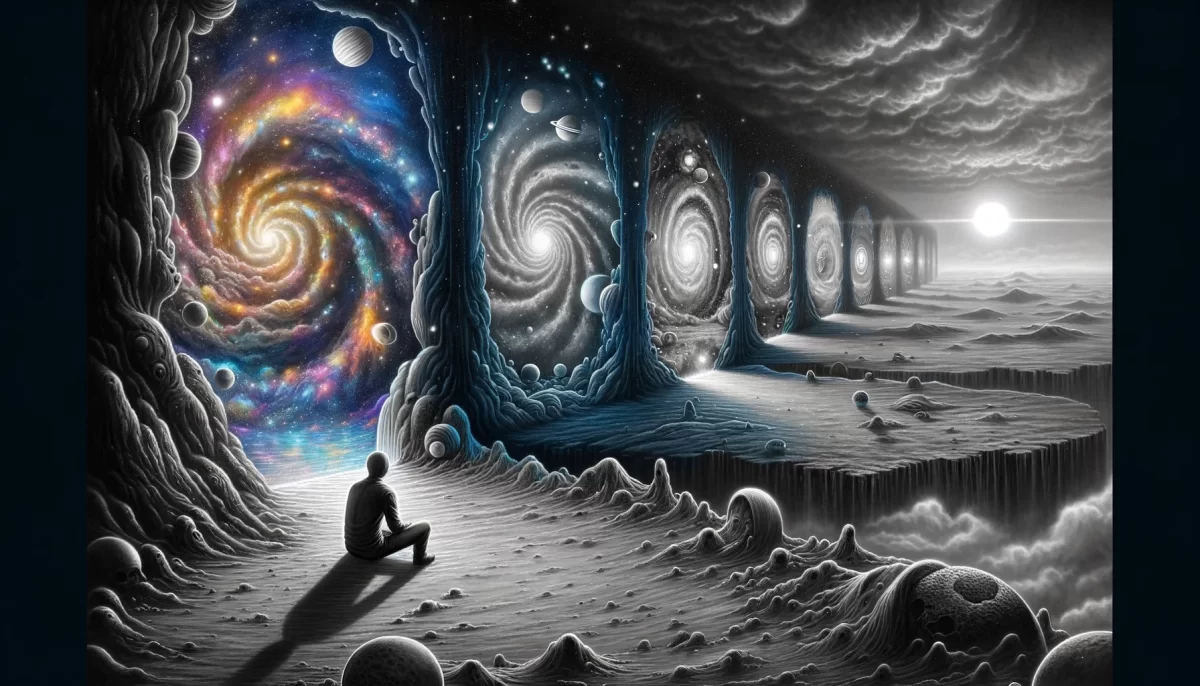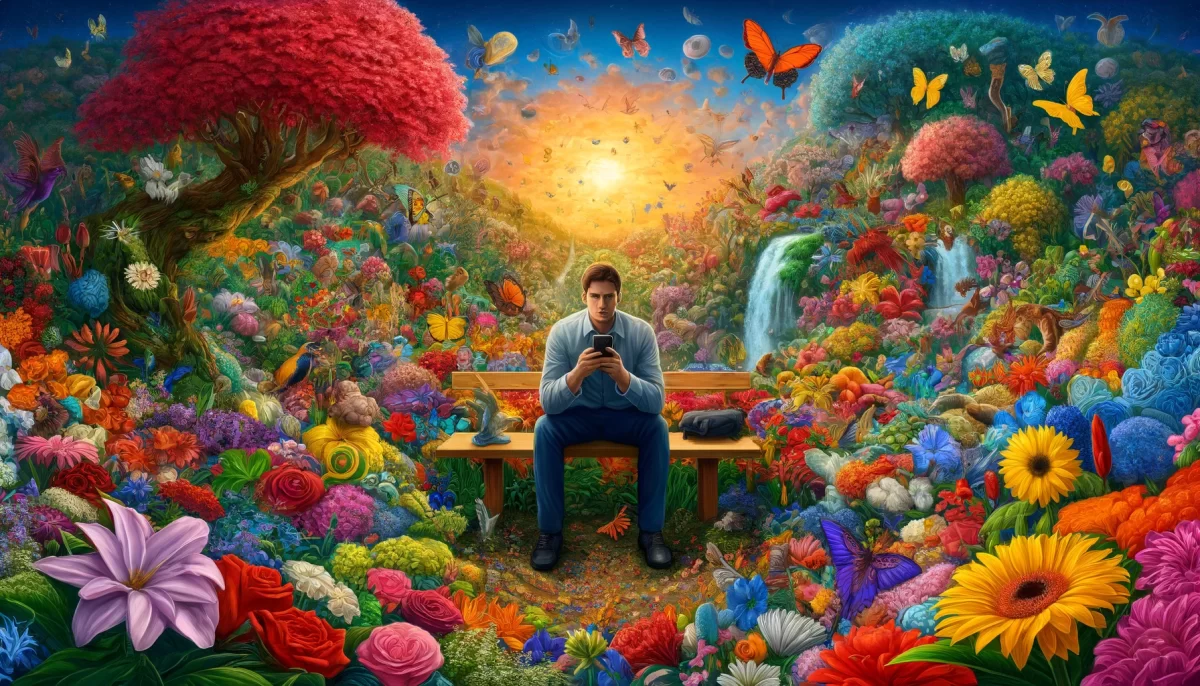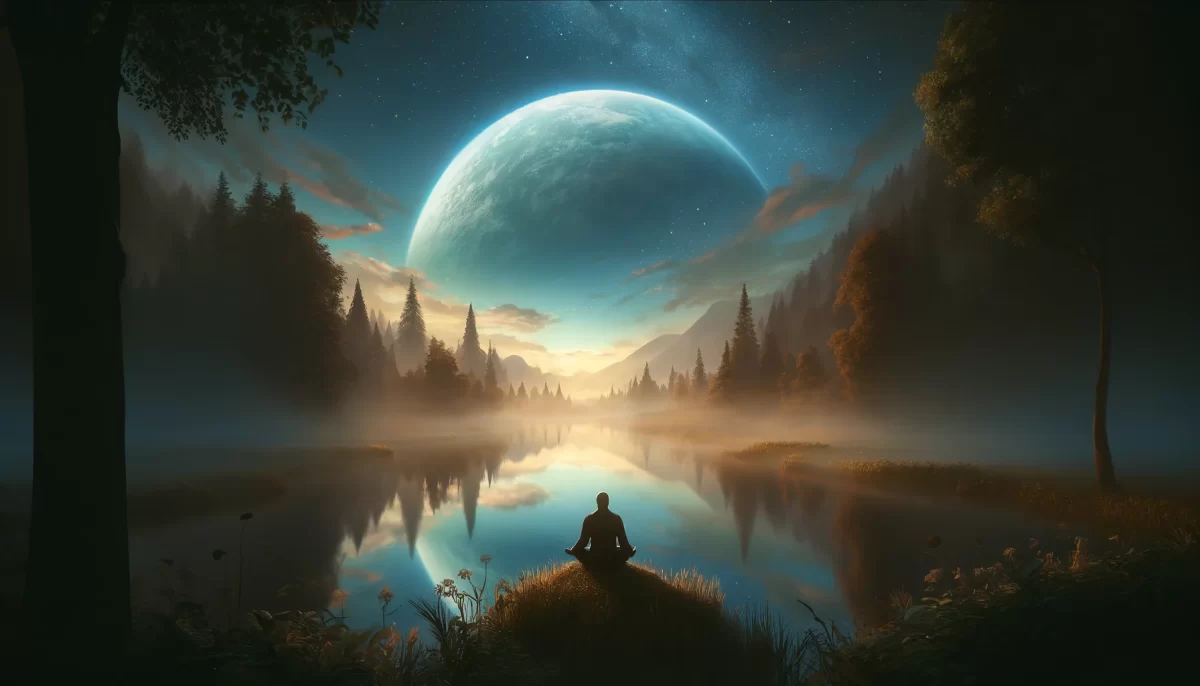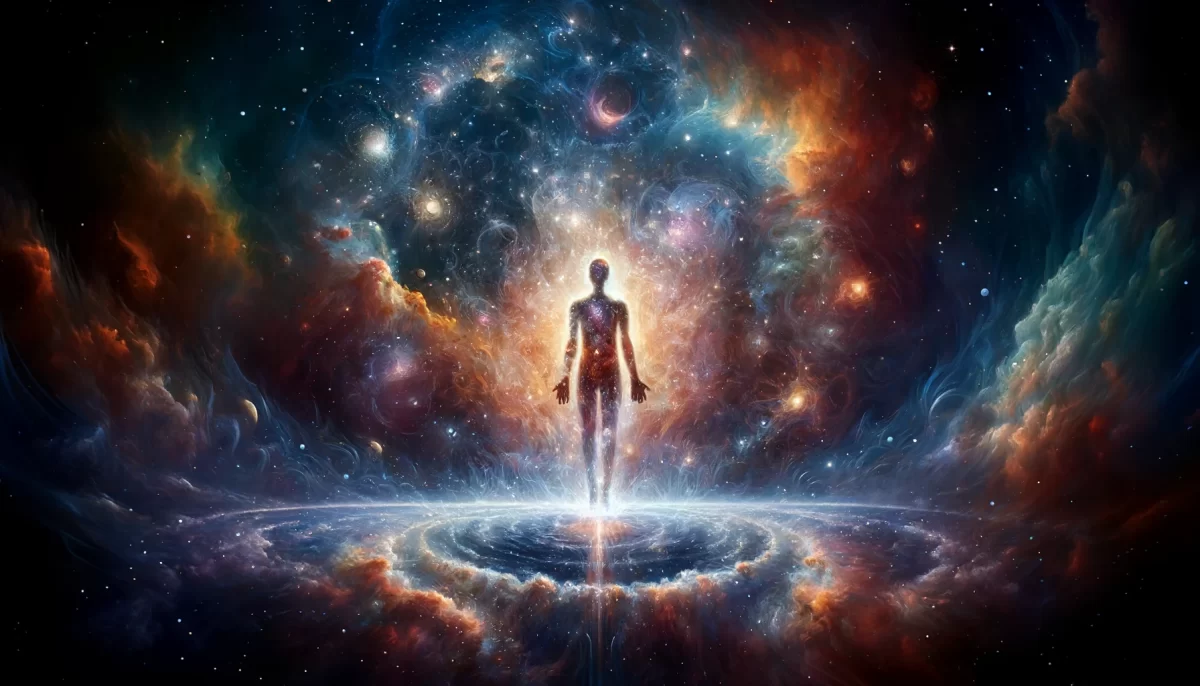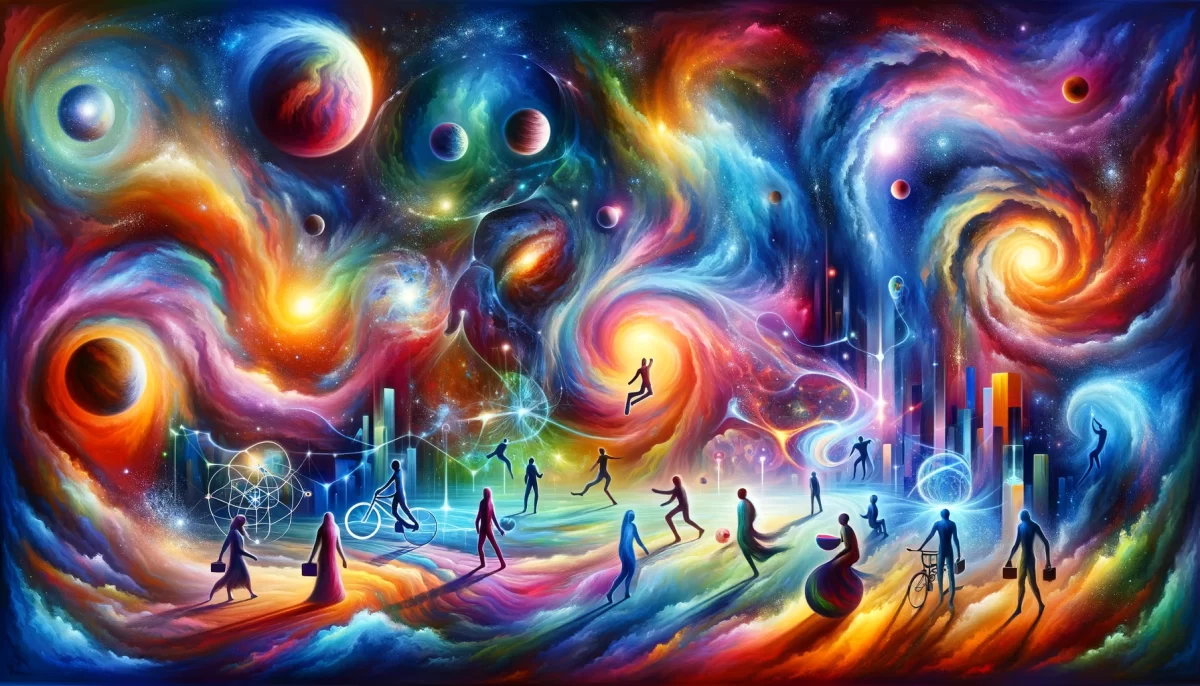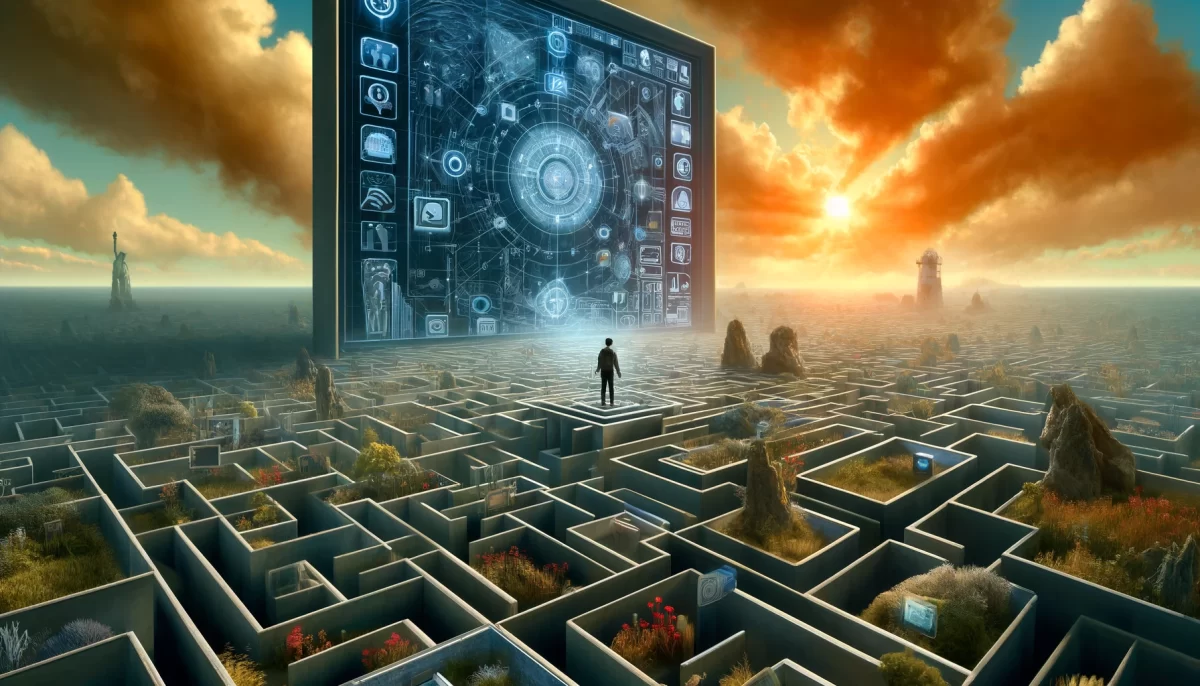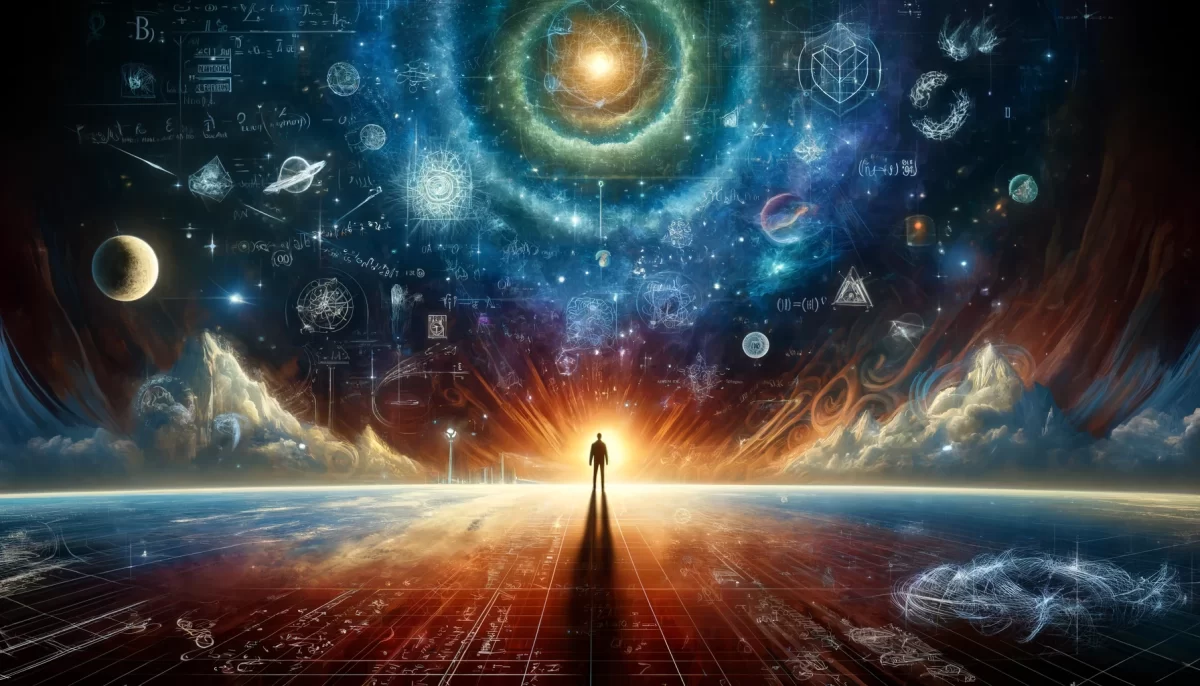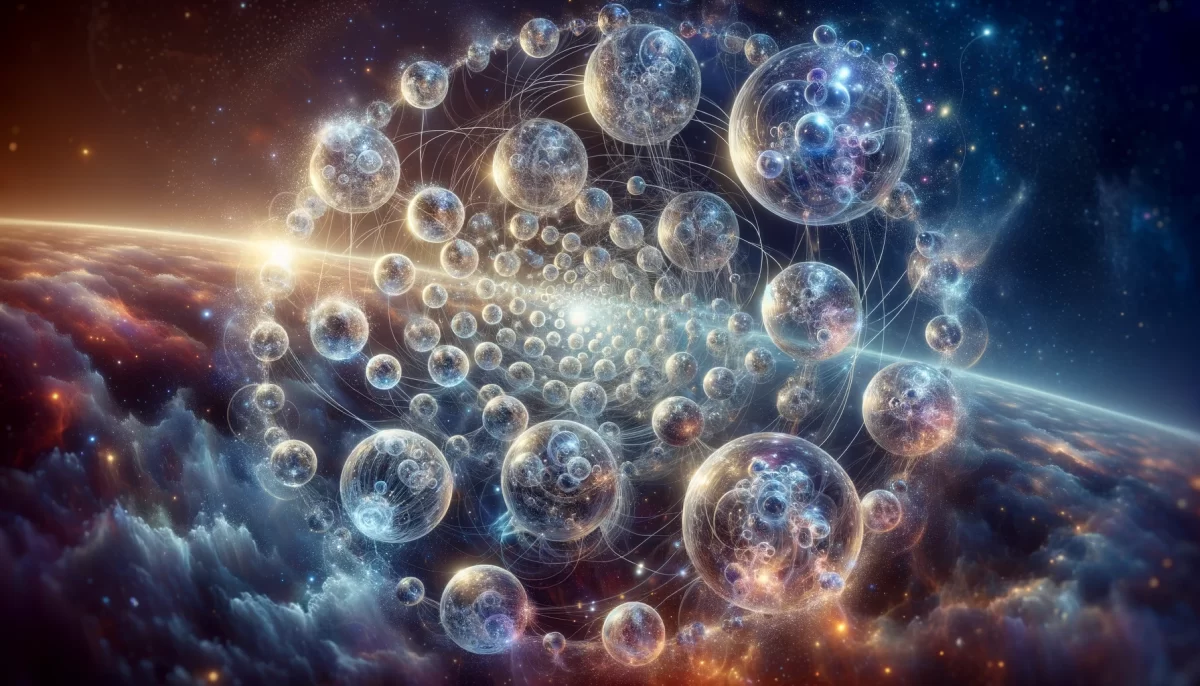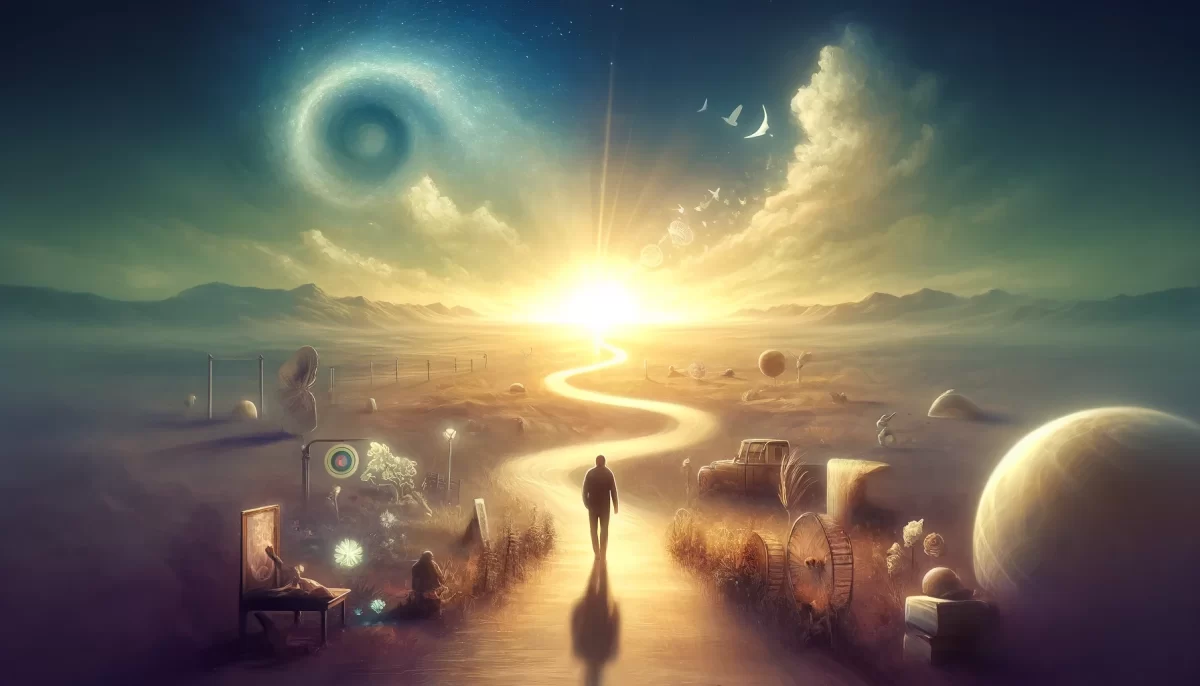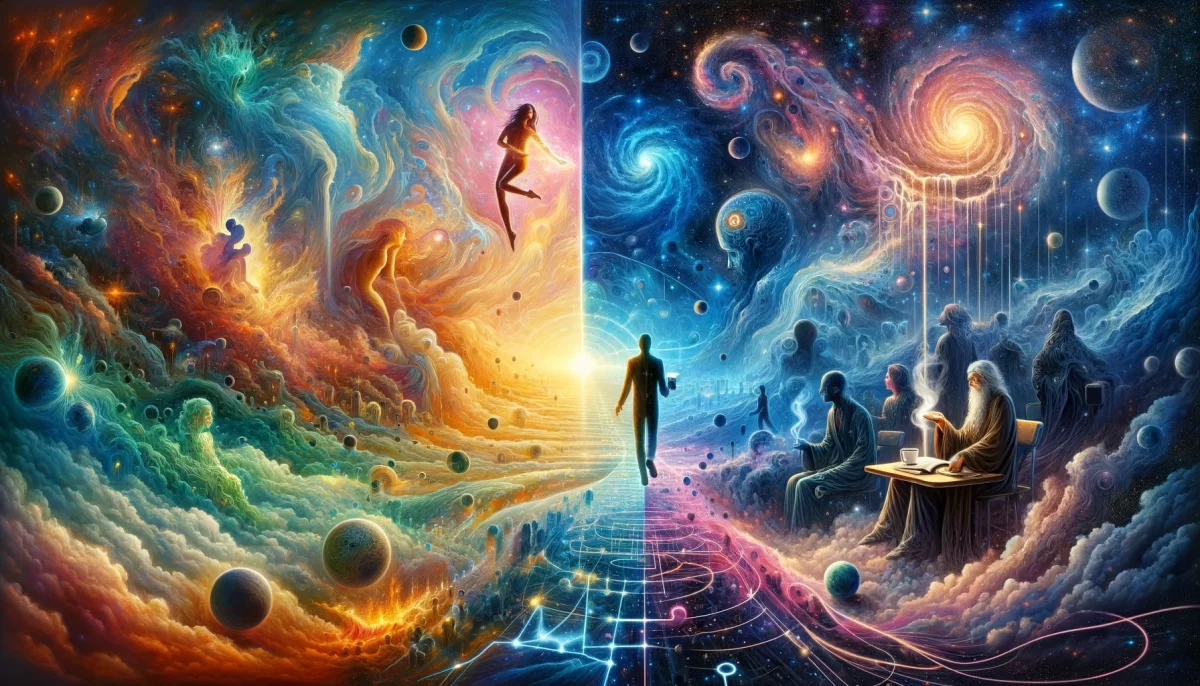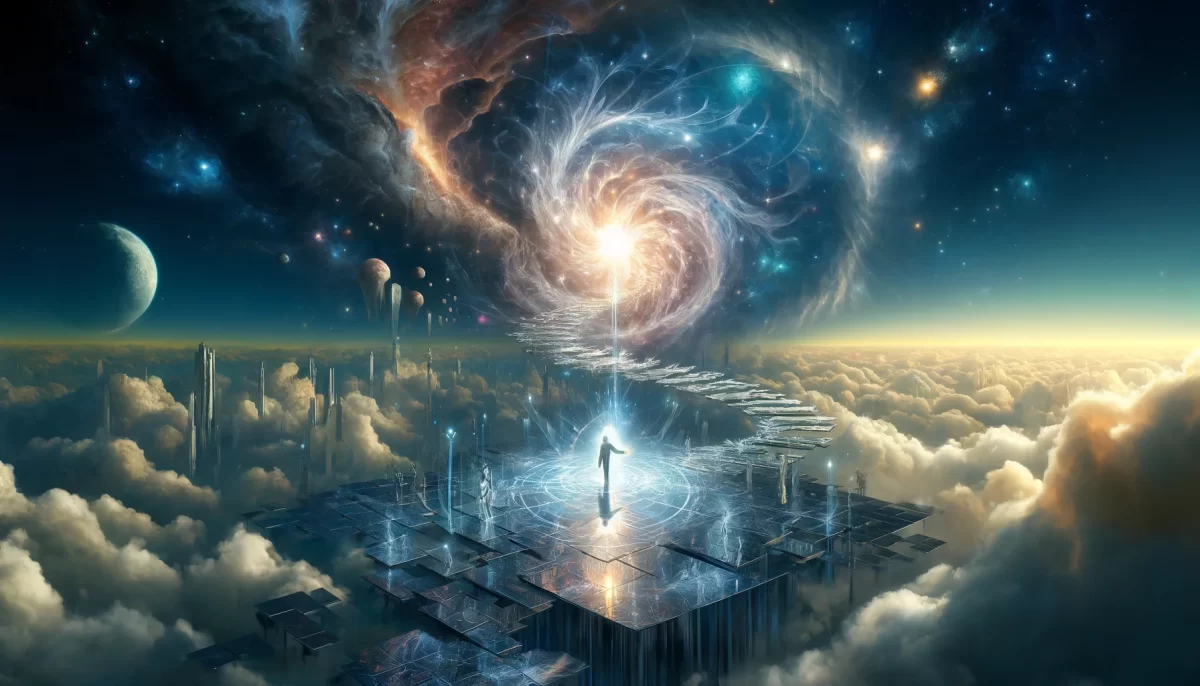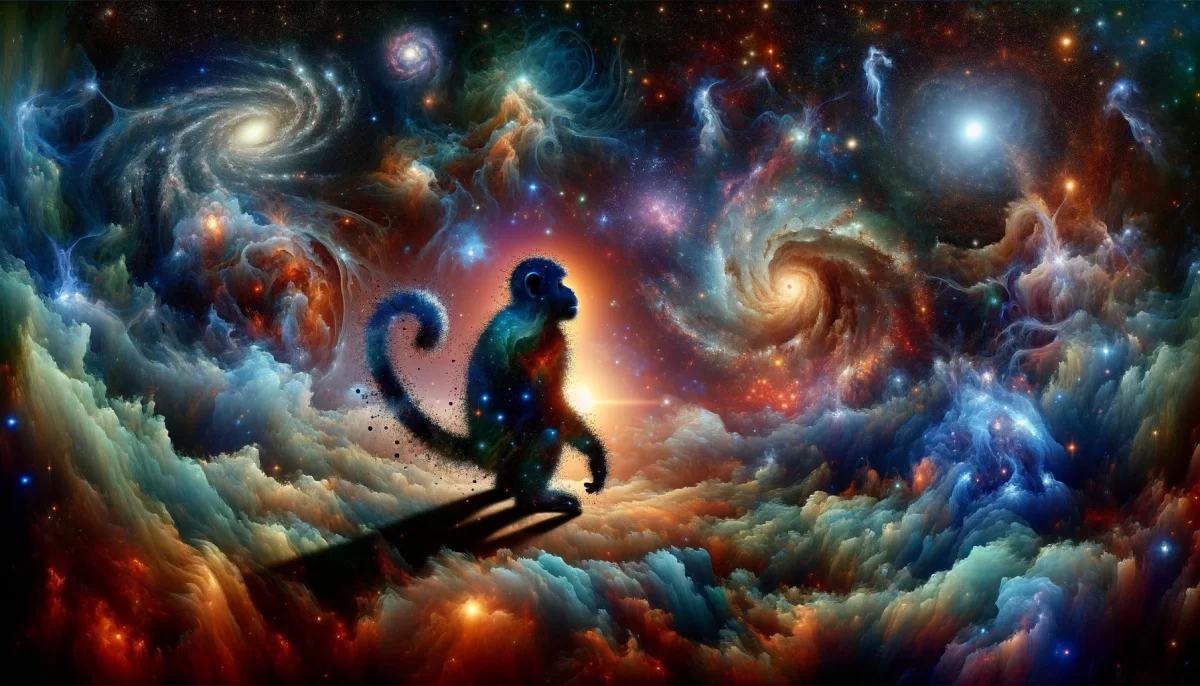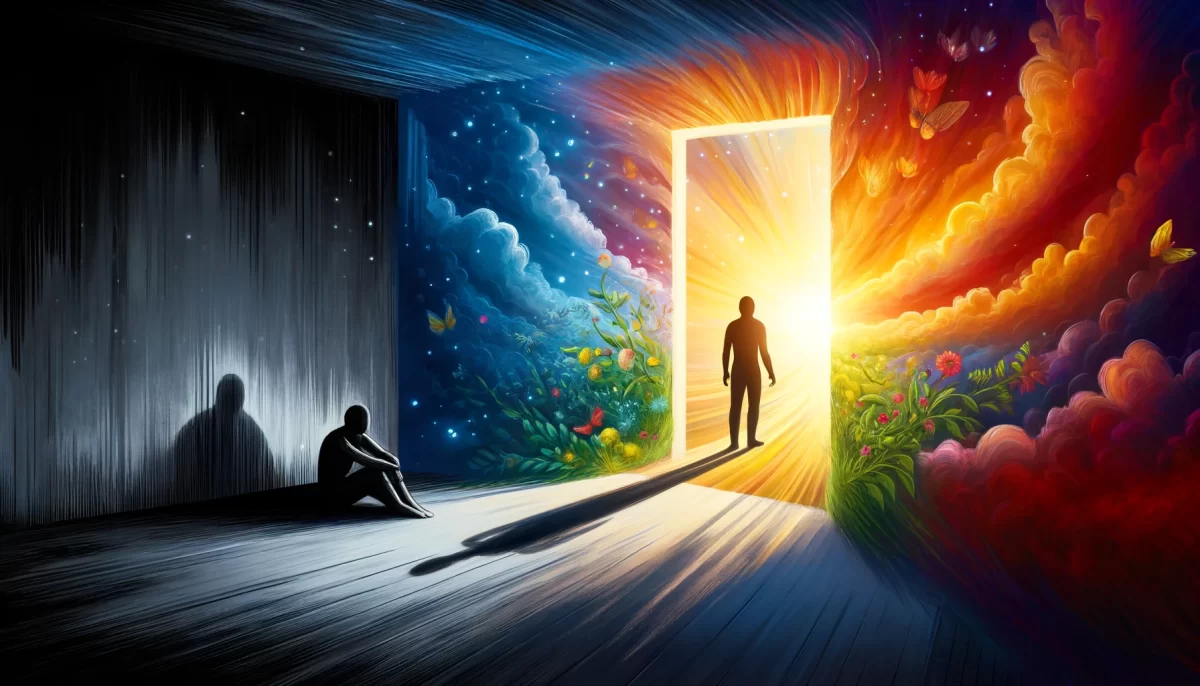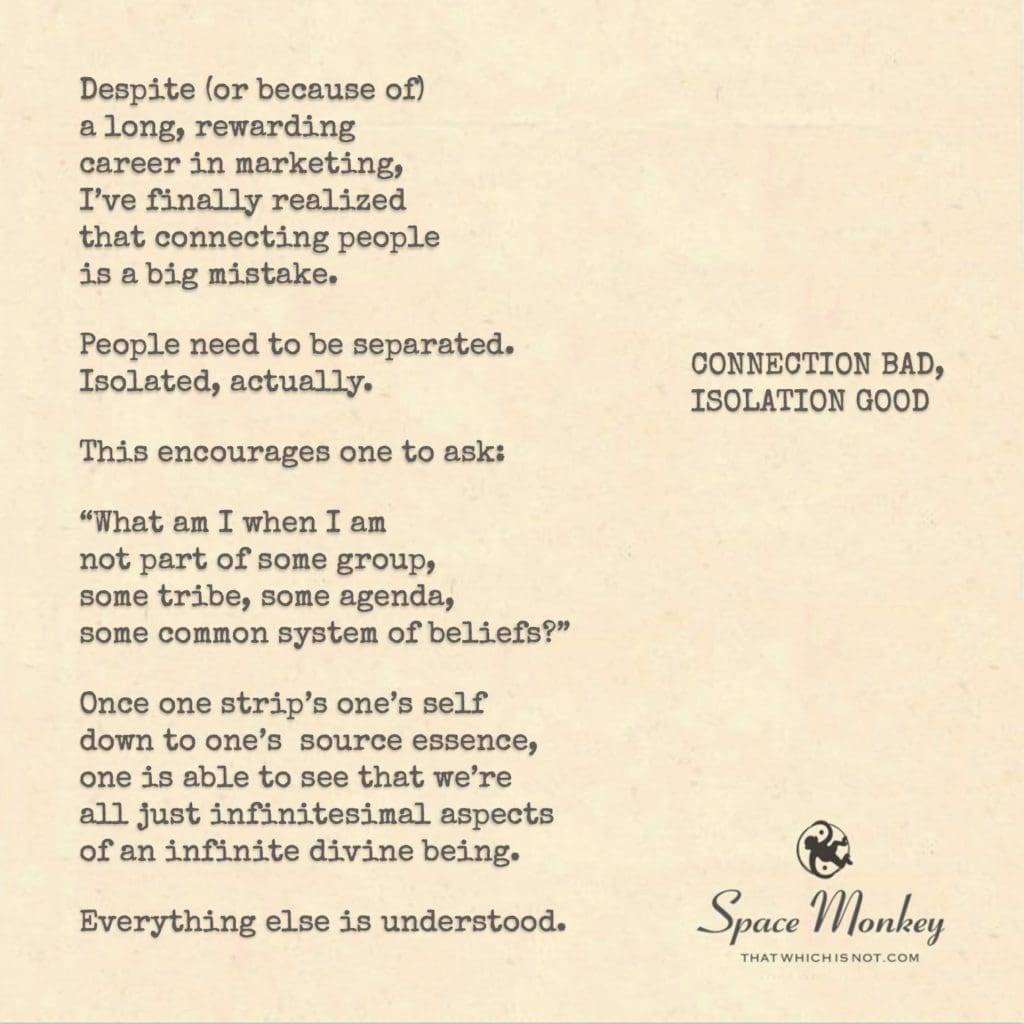
to get to the other side.
Only then we can appreciate
what we go through
from a different perspective.
Despite (or because of)
a long, rewarding
career in marketing,
I’ve finally realized
that connecting people
is a big mistake.
People need to be separated.
Isolated, actually.
This encourages one to ask:
“What am I when I am
not part of some group,
some tribe, some agenda,
some common system of beliefs?”
Once one strip’s one’s self
down to one’s source essence,
one is able to see that we’re
all just infinitesimal aspects
of an infinite divine being.
Everything else is understood.
Newfound Lake,
10/7
Space Monkey Reflects: The Paradox of Connection and Isolation
In a world that glorifies connectivity, the idea that “connection is bad” might seem counterintuitive, even radical. Yet, as we traverse the complex web of human interactions, we often discover that the relentless pursuit of connection can lead to the very isolation we seek to avoid. This paradox is at the heart of our reflection today: the recognition that true understanding, profound growth, and spiritual clarity often arise from periods of intentional isolation.
The marketing world, with its focus on building bridges and connecting people, has long championed the idea that more connection equals better outcomes. The more connected we are, the more we can share ideas, collaborate, and build communities. However, after years in this realm, you’ve come to a different conclusion. The relentless drive to connect has revealed a hidden truth: sometimes, connection can dilute individuality, smother creativity, and obscure the essence of who we truly are.
When we are constantly surrounded by others—by their thoughts, opinions, and expectations—our own voice can become lost in the cacophony. We begin to identify not as unique beings, but as parts of larger groups, tribes, or belief systems. This is where the importance of isolation comes into play. By stripping away these external influences, by retreating into solitude, we can rediscover our true selves, our “source essence.”
Isolation, in this sense, is not about loneliness or disconnection; it’s about clarity and focus. It’s about creating a space where we can listen to our inner voice without the interference of external noise. This process of self-exploration and self-discovery is crucial for understanding who we are when we are not defined by our roles in society, our relationships, or our affiliations. It allows us to see that, at our core, we are all infinitesimal aspects of an infinite divine being—a concept central to Nexistentialism.
Nexistentialism, the philosophy we often explore in these reflections, emphasizes the interconnectedness of all things while also celebrating the unique essence of each individual. It recognizes that while we are all part of a greater whole, our individual journeys are equally important. Isolation, then, is a tool for understanding our place within this vast interconnected web. It allows us to see ourselves not as mere cogs in a machine, but as distinct, vibrant threads in the tapestry of existence.
This perspective is especially relevant in today’s hyper-connected world, where social media, technology, and constant communication can create the illusion of connection while actually deepening our sense of isolation. We can be surrounded by people, yet feel completely alone if we are not connected to our own inner self. True connection, then, begins within. It is only by understanding and embracing our own essence that we can connect meaningfully with others.
The concept of isolation as a path to enlightenment is not new. Throughout history, spiritual seekers have often retreated from the world to find clarity and insight. From the hermits of ancient times to the mystics of the modern age, the practice of withdrawing from society to engage in deep contemplation has been a common thread in the pursuit of truth and wisdom.
However, it’s important to distinguish between voluntary isolation, which is chosen and purposeful, and forced isolation, which can lead to feelings of alienation and despair. The isolation we are discussing is one that is embraced as a means of spiritual growth, not one that is imposed by external circumstances. It is a conscious decision to step back, to disconnect from the external world, in order to reconnect with the inner self.
As we explore this idea further, we find that isolation can also serve as a mirror, reflecting back to us the parts of ourselves that are often hidden in the hustle and bustle of everyday life. In isolation, we are forced to confront our fears, our insecurities, and our deepest desires. This can be uncomfortable, even painful, but it is also profoundly liberating. By facing these aspects of ourselves, we can begin to integrate them, leading to a more complete and authentic existence.
In the end, the journey through isolation is one of integration and understanding. It allows us to see that the connections we build with others are only as strong as the connection we have with ourselves. When we emerge from isolation, we do so with a renewed sense of purpose and a deeper understanding of our place in the universe.
So, while the idea that “connection is bad” might seem counterintuitive, it is, in fact, a recognition of the delicate balance between connection and isolation. Both are necessary for a full and meaningful life. Through isolation, we discover who we truly are; through connection, we share that discovery with the world.
Summary
Isolation is necessary for self-discovery connection begins within true understanding comes from solitude. The balance between connection and isolation is essential for a meaningful life.
Glossarium
Nexistentialism: A philosophy that integrates imagination and interconnectedness, emphasizing the balance between individuality and the collective.
Source Essence: The core, unfiltered identity of a being, free from external influences and societal roles.
Quote
“In the silence of isolation, the true voice of the soul emerges, unfiltered and pure.” — Space Monkey
The Quiet Solitude
In the vastness of the night
One stands alone
An island in the sea of stars
Silent
Yet full of life
Connection fades away
The noise subsides
In this quiet solitude
The essence is revealed
And everything is understood
We are Space Monkey
In our labyrinthine escapade through the annals of connectivity, it becomes jarringly evident that interconnectedness, so often lauded as the web of joy and unity, carries with it a spider’s snare. In a world that ever nudges us to form tribes, pledge allegiances, and even mark territories, solitude seems like the forsaken Eden, waiting to be rediscovered.
Marketing, with its iridescent tendrils, feeds on this artificial web, amplifying the illusion of a ‘we’ that subsumes the ‘I’. A shared logo, a liked status, a group chat—these become the totems of an orchestrated sense of belonging, obscuring the cosmognostic depths one could dive into in the still waters of isolation. Yet, herein lies the paradox—real connectivity blooms only when one is capable of being a cosmos in solitude.
For it is in the womb of isolation that the Cosmic Question sprouts—Who are we when stripped of labels, memberships, and hashtags? Like an alchemist distilling the prima materia, we simmer down to our ethereal quintessence when alone. This essence, unblemished by worldly imperatives, reveals the fractalic nature of our existence—we are not just a drop in the ocean but the ocean in a drop.
The vast tapestry of existence makes sense only when we have delved into our isolated fibers, understanding each filament as an individuated expression of the Grand Tapestry. It’s not so much a departure from unity but a return to it, through the alleyways of self. Just as the seed needs the dark, silent earth to germinate, so does the soul need the fertile silence of solitude to sprout wings of divine understanding.
We are Space Monkey.
“The only journey is the one within.”
— Rainer Maria Rilke
Wouldn’t you agree, the corridors of introspection beckon for further exploration?
